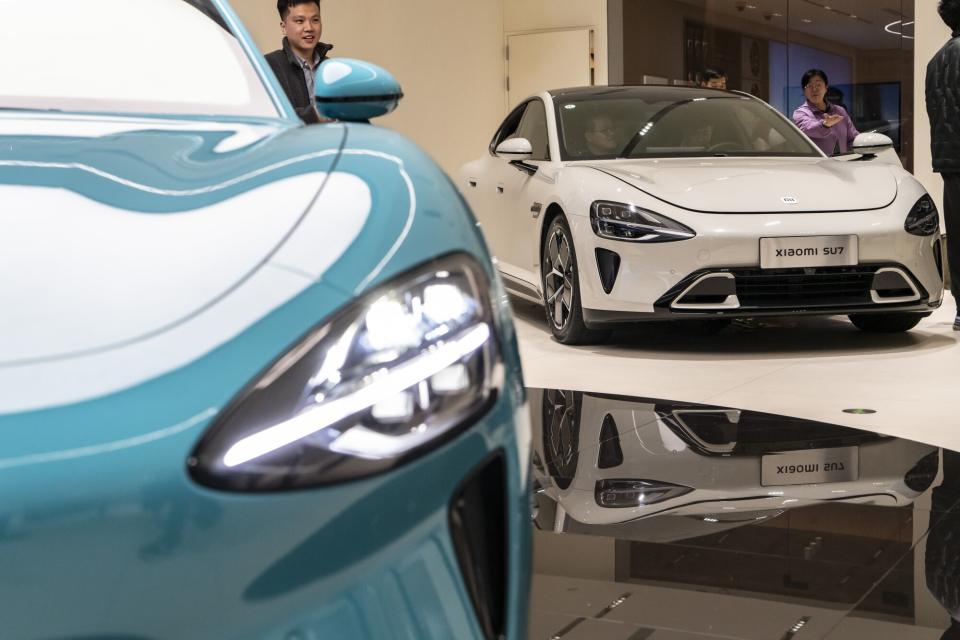Xiaomi Buys $116 Million Site in Beijing to Expand EV Production

(Bloomberg) -- Chinese tech company Xiaomi Corp. has purchased a plot of land in Beijing for 842 million yuan ($116 million) to expand electric car production following the early success of its debut sedan.
Most Read from Bloomberg
Kamala Harris Wipes Out Trump’s Swing-State Lead in Election Dead Heat
Intel to Cut Thousands of Jobs to Reduce Costs, Fund Rebound
Luxury Heir Alleges His $13 Billion Hermès Fortune Has Vanished
Hamas Says Israel Killed Political Leader With Airstrike in Iran
The 53-hectare (131-acre) site is close by Xiaomi’s existing EV factory in the capital’s Yizhuang district, according to filings published by the Beijing Municipal Commission of Planning and Natural Resources. The land was bought by Xiaomi subsidiary Xiaomi Jingxi Technology Ltd. and will be used for the “development of the high-end automobile and new energy intelligent vehicle industry,” the filing said.
Xiaomi entered the auto market in March with its base model SU7 costing 215,900 yuan — the first step in Chief Executive Officer Lei Jun’s $10 billion plan to become a major force in the EV market. Lei said earlier this month that the company has already delivered 30,000 cars and is on track to hit its initial 2024 sales goal of 100,000 vehicles as soon as November.
Xiaomi’s successful foray into EVs stands in contrast to competitors who are struggling for market share in a crowded industry. Beijing phased out national subsidies for EV purchases in 2022, and slowing demand has seen several EV makers including WM Motor Technology Group and the premium HiPhi brand from Human Horizons Shanghai Internet Technology Co. Ltd. go bankrupt or suspend production.
The firm, best known for making smartphones, also aims to begin making and selling a sport utility vehicle similar to Tesla Inc.’s Model Y as early as 2025. It has previously said that it plans to start work on phase two of its car factory, with construction scheduled to finish in 2025. The first phase has an annual production capacity of 150,000 cars.
The company didn’t immediately respond to a request for comment on the land acquisition.
Xiaomi gained an independent car manufacturing qualification in July, which means it no longer needs to use the permit of state-owned BAIC Motor Corp.
--With assistance from Gao Yuan.
Most Read from Bloomberg Businessweek
Inside GunTube, the YouTube Subculture Linked to the Trump Shooter
Scammers Target Middle East Influencers With Meta’s Own Tools
©2024 Bloomberg L.P.

 Yahoo Finance
Yahoo Finance 